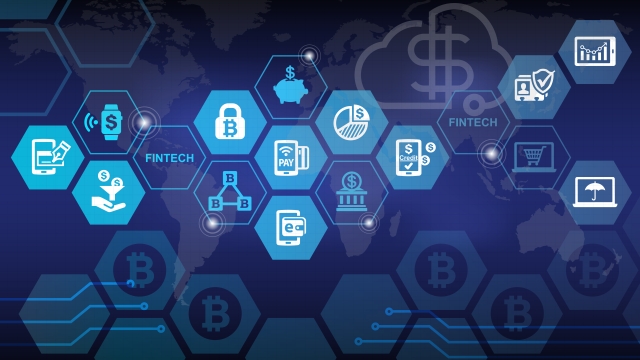The Future of Finance: Exploring Web3 and DeFi
The world of finance is evolving at a rapid pace, with new technologies and innovations shaping the way we manage and transfer value. One such transformative force is Web3, the third generation of the internet that promises to decentralize power and empower individuals. At the heart of this movement lies Decentralised Finance (DeFi), a groundbreaking concept that leverages blockchain technology and cryptocurrencies to create a more inclusive and accessible financial ecosystem.
Web3 represents a paradigm shift from the current centralized model of the internet towards a more decentralized and peer-to-peer network. With its foundation in blockchain technology, Web3 aims to redefine trust, security, and privacy in the digital landscape. By removing intermediaries and facilitating direct peer-to-peer interactions, Web3 could revolutionize the way we conduct financial transactions, eliminating the need for traditional financial institutions.
At the forefront of Web3’s potential is the concept of Decentralised Finance (DeFi). DeFi leverages the power of blockchain and cryptocurrencies to recreate traditional financial systems, such as banking, lending, and even insurance, in a more transparent, efficient, and accessible manner. Built on smart contracts, DeFi protocols enable anyone with an internet connection to access a plethora of financial services without the need for a centralized authority or bureaucracy.
The integration of blockchain technology in DeFi introduces several benefits. It enables real-time, tamper-proof transaction records, reducing the risk of fraud and enhancing the security of financial operations. Moreover, blockchain’s decentralized nature fosters a greater level of trust and transparency, as participants can verify transactions independently and hold a stake in the governance of these protocols.
The rise of cryptocurrencies has been a fundamental driver of the DeFi movement. Blockchain-native assets like Bitcoin and Ethereum serve as the foundation for DeFi applications, offering the potential for borderless transactions, lower fees, and increased financial inclusion. These digital currencies provide individuals with greater control over their funds, eliminating the obstacles presented by traditional banking systems and often serving as the gateway to decentralized financial services.
As we look towards the future, the impact of Web3 and DeFi on the world of finance is poised to be transformative. However, it is important to note that this emerging landscape is not without its challenges. Scalability, regulatory frameworks, and security concerns are just a few of the hurdles that must be addressed to fully realize the potential of Web3 and DeFi.
In conclusion, the convergence of Web3 and DeFi holds the promise of a more inclusive, efficient, and user-centric financial system. By embracing the principles of decentralization, blockchain technology, and cryptocurrencies, we have the opportunity to reshape finance, putting power back into the hands of individuals and fostering a more equitable global economy. The journey towards this future is just beginning, and it will be exciting to witness the transformative potential of Web3 and DeFi unfold.
Understanding Web3 and its potential impact on finance
Web3, the next iteration of the internet, has the potential to revolutionize finance as we know it. At its core, Web3 is built on the principles of decentralization and transparency, harnessing the power of blockchain technology to reshape traditional financial systems.
With Web3, individuals can participate in Decentralised Finance (DeFi) platforms that provide a wide range of financial services without the need for intermediaries. These platforms leverage smart contracts, programmable agreements that automatically execute transactions when predefined conditions are met. By eliminating intermediaries, Web3 opens up new opportunities for financial inclusion and empowers individuals to have more control over their financial activities.
Blockchain technology, a fundamental component of Web3, plays a crucial role in ensuring the security and immutability of financial transactions. Blockchain allows for the transparent recording of transactions on a decentralized ledger, removing the need for centralized authorities to verify and validate transactions. This feature not only enhances security but also reduces costs and increases transaction speed.
Cryptocurrencies, the digital assets native to Web3, are central to the development of DeFi. These cryptocurrencies, such as Bitcoin and Ethereum, enable the seamless transfer of value across borders, eliminating the need for traditional banking systems. Additionally, they enable the creation of new financial instruments, such as stablecoins, which are cryptocurrencies pegged to the value of a traditional currency like the US Dollar.

In conclusion, Web3 and DeFi have the potential to transform finance by making it more accessible, transparent, and efficient. By leveraging blockchain technology and cryptocurrencies, individuals can participate in a wide range of financial activities, from borrowing and lending to asset trading and decentralized insurance. The future of finance lies in embracing the decentralized nature of Web3 and harnessing its transformative power.
The Rise of Decentralised Finance (DeFi)
Decentralised Finance, often referred to as DeFi, has emerged as a groundbreaking concept within the world of finance. This revolutionary approach leverages the power of Web3 and blockchain technology to create a more open, transparent, and accessible financial ecosystem.
In recent years, DeFi has garnered significant attention and adoption, transforming traditional financial systems. By eliminating the need for intermediaries such as banks and brokers, DeFi opens up new possibilities for individuals to manage their assets directly, without relying on centralized authorities.
One of the key factors contributing to the rise of DeFi is its ability to leverage blockchain technology. By utilizing a decentralized ledger, transactions on DeFi platforms can be executed in a trustless and transparent manner, ensuring immutability and security. This enables efficient and seamless financial interactions, making DeFi an attractive alternative to traditional financial systems.
Furthermore, DeFi offers a wide range of financial services and applications, including lending, borrowing, trading, and asset management. These services are powered by smart contracts, which automate and enforce the terms of agreements, ensuring a secure and reliable execution of financial transactions.
The growth of DeFi indicates a growing demand for financial systems that are inclusive, decentralized, and built on the principles of transparency and autonomy. With the potential to reach a global audience and empower individuals to take control of their finances, DeFi is set to reshape the future of finance in a profound and transformative way.
The Role of Blockchain and Cryptocurrency in the Future of Finance
In the future of finance, blockchain technology and cryptocurrency are expected to play a crucial role. Blockchain, as a decentralized ledger system, offers transparency, security, and immutability to financial transactions. By removing the need for intermediaries, such as banks, blockchain allows for direct peer-to-peer transfers of value.
Cryptocurrencies, built on blockchain technology, are digital assets that can be used as a medium of exchange. They provide individuals with greater control over their finances, eliminating the reliance on traditional banking systems. With cryptocurrencies, transactions can be conducted globally within seconds, making cross-border payments more efficient and cost-effective.
The emergence of decentralized finance (DeFi) platforms has further expanded the potential impact of blockchain and cryptocurrencies. DeFi platforms enable traditional financial services, such as lending, borrowing, and trading, to be conducted on a decentralized network. This opens up financial opportunities for individuals who were previously excluded from the traditional financial system.
As the adoption of blockchain and cryptocurrencies continues to grow, we can expect to see a shift in the way financial services are conducted. The decentralized nature of these technologies has the potential to democratize finance, giving individuals more control over their financial assets and removing barriers to entry. With the advent of Web3, the future of finance is set to be more inclusive, efficient, and accessible to all.


